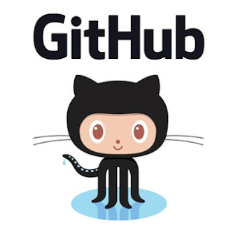Compare Products

|

|
Features * A-A-P is portable over many systems. At least most Unix variants, MS-Windows and possibly the Macintosh.
* A-A-P is open source, free software. Most of it is under the GNU GPL. Interfaces and libraries are more free.
* A-A-P is not a monolitic program. It is made out of separate modules with clear interfaces. Most of the work is done by existing tools.
* Since network connections are slow and unreliable - and when using a laptop - a local copy of a file is often required. A-A-P caches files, obtains a new version when available and cleans up files that have not been used recently.
* The more alternatives there are, the more choices a developer has to make. Making all these choices slows down development. Therefore A-A-P provides a preferred set of modules. Many people will be satisfied with most of these modules, but will still be able to use a different module where they have a preference.
* A-A-P is available in a command-line version and in a GUI version. The command-line version works on a console and over a telnet connection. The GUI version is easier to use, but requires a windowing system.
* A-A-P maintains a set of preferences. These are global to all projects but local to the user or system. This specifies where specific tools, libraries, documentation files, etc. can be found. This greatly reduces the need to configure a package when building or installing it.
* English is used in the original code. Provisions are made to add translations through the use of message files.
* Reliability is considered more important than fancy features. A-A-P is a tool you can rely on.
|
Features * Platform-independent user data provider option (formatted like a properties file)
Ability to run Asgard in one AWS account and AssumeRole to manage a different account
* Automated deployment can accept arbitrary user-chosen steps
Each application can have an optional application group
* Each application can have optional tags
Enable configurable maximum number of ASGs per cluster
* REST endpoints for retrieving a deployment workflow plan JSON blob, and for starting a workflow with that JSON
Additional ways to configure Asgard to get AWS credentials, including from an IAM profile
* Updated list of AWS instance types
Links to security groups include both name and ID
* Made it possible to skip cache loading during cache loading, using runtime flag API
Support for HTTPS ELB listeners (Thanks Greg Dziemidowicz)
* Configurable AWS API socket timeout value
* Shared visibility all of in-memory running tasks across Asgard instances in a cluster
Filterable instance reservations by offering type
* Stop entire workflow if exception happens at any time during long auto deployment
Auto deploy should still work even without Eureka configured
* Route53 interface
* Instance sub-lists by Eureka application, where available
* Allow editing SNS Topic MessageRetentionPeriod
* Update SQS Queue policy automatically when the Queue gets subscribed to an SNS Topic
* Navigation links between associated SNS * Topic and SQS Queue detail screens
* Verify ELB status for instances during auto deploy ASG health check
* Expose AWS account attributes at /account/attributes.json
* Monitor Bucket Type of "none" for applications
* Show filter on Stack list screen
|
LanguagesC CPP Java Python |
LanguagesJava Other |
Source TypeOpen
|
Source TypeOpen
|
License TypeGPL |
License TypeOther |
OS Type |
OS Type |
Pricing
|
Pricing
|
X
Compare Products
Select up to three two products to compare by clicking on the compare icon () of each product.
{{compareToolModel.Error}}Now comparing:
{{product.ProductName | createSubstring:25}} X